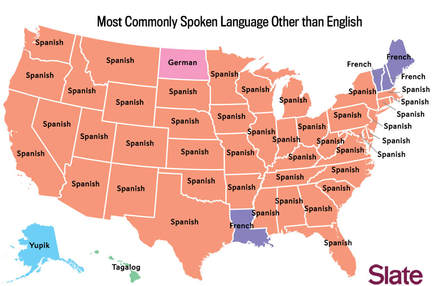|
The PIO community has made great strides over the last 10-15 years by expanding how we think of our audience to include Spanish speakers. It is now routine to have updates and social media posts translated into Spanish and you can usually find a Spanish-speaking PIO on most large incidents. There is support for this from both the greater organizations and the response community. (And kudos to those who have pioneered sign language at public meetings and other Info events.)  However, I fear we lack consistency. Having worked with a number of translators over the recent years, there seems to be no agreed-upon way of phrasing some of our English words and expressions. For instance, wildland fire words like burnout and smoldering are delivered differently in Spanish depending on who might be doing the translating. This could be confusing with concurrent national incidents or back-to-back incidents in the same area. Some of our parlance is just not going to be universally translated and if the translator is not part of the wildland fire world, the task becomes even more challenging. My guess is we would run into similar problems on the all-hazard front. While there are several all-hazard Spanish glossaries out there, the ones I found seem quite basic. They can describe the incident as a whole, but would not be useful in describing strategy, tactics, effects, and other items that are a part of every incident. Likewise, Google showed me a couple of Spanish glossaries for (kind of sort of) wildland fire out there, but they date from the 1980's and don't go into the detail needed. So, I think at a minimum we need an updated Spanish glossary to be consistent in how we describe incidents to our Spanish-speaking audiences. This appears to be a perfect undertaking for our government, but given budget and personnel issues, I'm not optimistic. I wonder if something like this could be crowd-sourced? Thoughts? _____ JIM Copyright © Jim Whittington, 2018, All rights reserved. Academic use approved with notification and attribution.
1 Comment
7/12/2018 15:32:01
It's very important that a third party shall be employed to investigate or handle all the decision making should there be a need. This is done to prevent any biased analysis. You know it's never fair to ask someone from any of the groups involved because no matter how much they claim that they will be making the right choices, we can't help but put them in a situation where nothing they will say or do will be right. Either side they choose, people will always have something to say.
Reply
Leave a Reply. |
Occasional thoughts on incident response, crisis communications, wildland fire, and other topics.
Docendo disco, scribendo cogito. Blog DOB: 4/26/2018Copyright © Jim Whittington, 2019. Archives
August 2019
Categories
All
|
 RSS Feed
RSS Feed